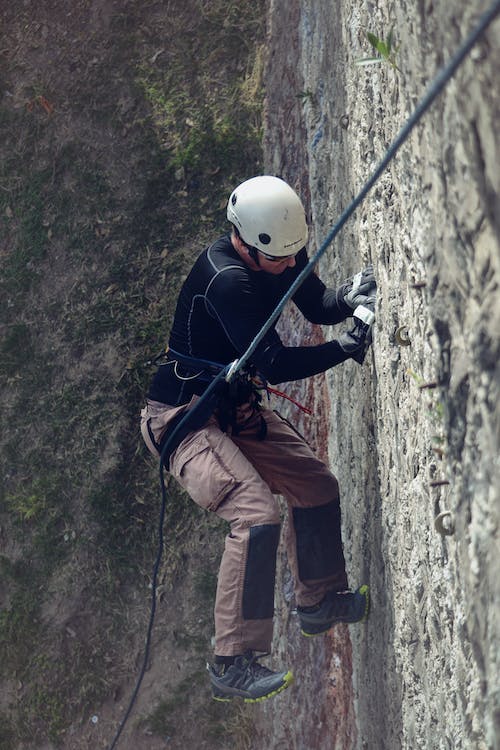Climbing is a thrilling sport. It is a great way to get stronger and meet other passionate climbers who share the same enthusiasm. Many pro-climbers know how to lead climb which is something that every climber aspires to do. As a beginner, you must understand the basics of the sport and form a sound knowledge base to enhance your learning. To help you with that, here are five essential climbing tips that every beginner must know.
1. Buy the right gear
If you are genuinely committed to the game, you need to buy some essential rock climbing gear to fasten your learning and keep you safe during the climb. Though climbing gear is necessary, you don’t have to burn a hole in your pocket to buy every climbing gear you lay your eyes on.
You need to buy only the essentials that will help you learn the basics of climbing. Once you progress, you can upgrade to more advanced gear. Here are some of the vital climbing gear you’ll need as a beginner:
- Chalk bag
- Chalk
- Harness
- Beginner climbing shoes
- Belay device
- Helmet
- Locking carabiner
2. Find a partner to climb with
Climbing is enjoyable if you do it with your friends. As a beginner, you should find someone who’d be interested in learning the sport with you. If that person happens to be a pro climber, that would be great.
If you plan to learn the sport of climbing, you will need someone to become your belay partner. Visiting your local climbing gym, you can discover a lot of people who share the same passion. Interacting with them can get you a partner who will be more than happy to help you learn the sport.
3. Join training group in the gym
It’s essential to develop a routine of climbing to embody the sport entirely. You need to be consistent to get better at it. You can join a local climbing group or the gym to meet many people who can help you learn different techniques from crack climbing to bouldering. You will also eventually learn how to lead climbs once you get trained enough to do that. It is highly challenging and needs a lot of practice and training from professionals.
A lot of local climbing groups meet and practice their climbing. Spending time with them will encourage you to follow your passion and push your limits while practicing. People tend to push themselves more when they are inspired and motivated by their peers.
4. Do not get stuck on grades.
Climbing grades provide the clarity and guidance to rate the difficulties of different problems and routines. Though they serve a great purpose, you should not be stuck on grades to determine whether you are growing or not. Many beginner climbers consider grades as the sole indicator of their progress. They ignore that they are getting stronger and developing their skills and learning new climbing techniques. To sum it up, refer to the grades for knowledge, but do not get obsessed with them.
5. Be patient
Climbing demands physical strength, years of practice, and a thorough understanding of different techniques. You should be patient in learning and developing your skills. You should avoid taking any shortcuts when it comes to climbing, as it can be a matter of life and death.
Climbing is a passionate sport if you know what you are doing. Always learn from trusted sources and climbing professionals to avoid accidents and stay safe during climbing.

